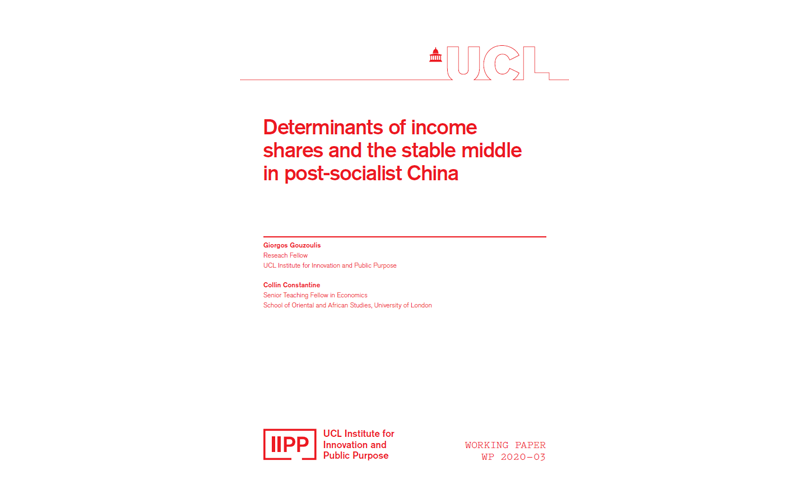Determinants of income shares and the stable middle in post-socialist China

8 June 2020
UCL Institute for Innovation and Public Purpose (IIPP) Working Paper Series: IIPP WP 2020-03
Authors
- Giorgos Gouzoulis | Research Fellow, UCL Institute for Innovation and Public Purpose
- Collin Constantine | Senior Teaching Fellow in Economics, School of Oriental and African Studies, University of London
Reference
Gouzoulis, G. and Constantine, C. (2020). Determinants of incomes shares and the stable middle in post-socialist China. UCL Institute for Innovation and Public Purpose, Working Paper Series (IIPP WP 2020-03). Available at: https://www.ucl.ac.uk/bartlett/public-purpose/wp2020-03
Abstract
This paper offers a historical analysis on how post-Socialist China’s transition to a globalised mixed-market economy led to class restructuring and estimates the drivers of its inter-decile income shares over the period 1978-2015 using Piketty et al. (2019)’s dataset. The key negative determinants of the bottom 50 percent are government consumption, trade openness and unemployment rate. The stable middle 40 percent is explained by the positive effects of government consumption, financial liberalisation and public indebtedness that compensate for the adverse effects of trade openness. Further, we find that government consumption, trade openness, and unemployment rate are positive determinants of the top 10 percent. More strikingly, trade openness disproportionately benefits the top 10 percent and this suggests that even China’s pragmatic world integration has been partial to business elites. Several policy ideas follow. First, China must overhaul its middle class urban-biased fiscal expenditure and second, the pension system must extend to the entirety of its income distribution. Third, stronger social welfare is required in the context of globalisation.
 Close
Close

